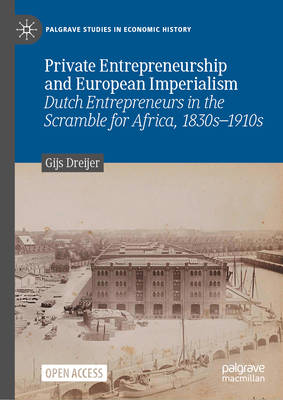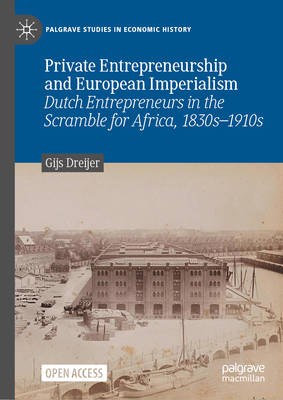
Je cadeautjes zeker op tijd in huis hebben voor de feestdagen? Kom langs in onze winkels en vind het perfecte geschenk!
- Afhalen na 1 uur in een winkel met voorraad
- Gratis thuislevering in België vanaf € 30
- Ruim aanbod met 7 miljoen producten
Je cadeautjes zeker op tijd in huis hebben voor de feestdagen? Kom langs in onze winkels en vind het perfecte geschenk!
- Afhalen na 1 uur in een winkel met voorraad
- Gratis thuislevering in België vanaf € 30
- Ruim aanbod met 7 miljoen producten
Zoeken
Omschrijving
This open access book presents a groundbreaking new perspective on European imperialism in Africa, by focusing on the role of Dutch private entrepreneurs in colonial activities during the so-called 'Scramble for Africa'. Distinguishing between a state-based 'Partition of' and an actor-based 'Scramble for' Africa, the book illustrates this process by tracking the entrepreneurial strategy of a group of Dutch entrepreneurs in the Scramble, at a time when the Dutch state itself largely withdrew from the African continent. This book thus investigates why and how nineteenth-century Dutch entrepreneurs from the port city of Rotterdam invested significant resources in West and West Central Africa between the 1830s and the 1910s. It demonstrates the trans-national nature of colonial investments in the Scramble for Africa, highlighting the crucial role Dutch entrepreneurs played in trade, production and investment in empires across West and West Central Africa (the Congo Free State, French Congo and Portuguese Angola). The book aims to rethink the Dutch role in European imperialism more broadly and its repercussions in the present day. The book takes into account the social and political implications of colonial entrepreneurship as much as the economic and business implications, going beyond a strictly entrepreneurial analysis of success and failure. It will be essential reading for scholars of economic and business history, as well as historians of imperialism, colonialism and trans-imperial relations.
Specificaties
Betrokkenen
- Auteur(s):
- Uitgeverij:
Inhoud
- Aantal bladzijden:
- 322
- Taal:
- Engels
- Reeks:
Eigenschappen
- Productcode (EAN):
- 9783032010858
- Verschijningsdatum:
- 7/02/2026
- Uitvoering:
- Hardcover
- Formaat:
- Genaaid
- Afmetingen:
- 148 mm x 210 mm

Alleen bij Standaard Boekhandel
+ 183 punten op je klantenkaart van Standaard Boekhandel
Beoordelingen
We publiceren alleen reviews die voldoen aan de voorwaarden voor reviews. Bekijk onze voorwaarden voor reviews.









